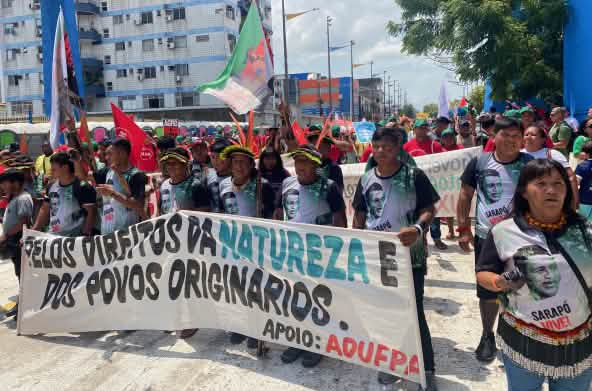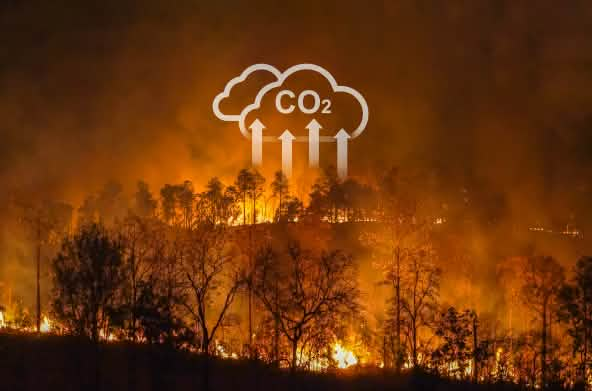Pétition terminée
Une mine d'uranium menace un parc naturel classé au patrimoine mondial
La société australienne Mantra Ressources veut extraire de l'uranium en Tanzanie. Une mine est projetée à la limite de la Réserve de gibier de Selous. Le parc, inscrit à la liste du patrimoine mondial de l'UNESCO, héberge de grandes populations d'éléphants et d'hippopotames ainsi que plus de 350 espèces d'oiseaux. Si la mine venait à voir le jour, la biodiversité de cette zone serait en péril. Participez à la pétition contre le projet de mine d'uranium.
Etendue sur 5 millions d'hectares, la Réserve de gibier de Selous possède la plus grande diversité faunique d'Afrique. Le parc naturel, encore en grande partie intact, est inscrit depuis 1983 sur la liste du patrimoine mondial de l'UNESCO. Y résident la moitié des éléphants du pays, rhinocéros noir, lycaons, guépards, girafes ainsi que de nombreuses espèces d'oiseaux rares. Loin d'être un écosystème isolé, le parc est relié à d'autres réserves naturelles par des corridors biologiques et des voies navigables.
Le gouvernement tanzanien a lancé un projet de mine d'uranium, en coopération avec des multinationales, le Mkuju-River-Project, qui s'étend jusqu'au parc de Selous. Cette mine constitue un énorme danger pour la réserve et les écosystèmes attenants. L'extraction d'une seule tonne d'uranium produit 99 tonnes de déchets radioactifs! Le seul devenir connu de ces derniers est l'isolation, et aucun processus industriel ne garantit la sécurité de leurs stockage.
Sauvons la forêt, en partenariat avec le réseau AG Uranium Network, appelle le gouvernement de Tanzanie et la société d'exploitation minière d'abandonner sans attendre leur projet d'extraction d'uranium. L' Homme et la Nature ne doivent pas être sacrifiés dans l'intérêt des investisseurs et du lobby nucléaire.
La fin des années 90 a vu la Tanzanie s'ouvrir à des projets d'investissements de grande envergure. L'exploitation minière doit, en particulier, servir de moteur au développement économique du pays, ses sols étant riche en uranium. Ainsi, depuis 2006, la Tanzanie a délivré 70 licences pour la prospection de l'uranium et identifié 20 gisements potentiels. Celui du Mkuju-River-Project est le plus grand d'entre eux.
Venue d'Australie, la société d'exploitation Mantra Ressources est un acteur nouveau et novice du secteur minier. L'entreprise n'a aucune expérience en matière de la très complexe réduction chimique de l'uranium. L'investisseur intéressé par le projet est la société canadienne Uranian One, sous le coup d'une enquête pour corruption au Kazakhstan.
L'extraction d'uranium causera la contamination des sols. Erigée à coté du fleuve de Mkuju, la mine polluera en surface et en profondeur les eaux de sédiments radioactifs, ce dont souffriront la faune et la flore de la réserve. Les infrastructures nécessaires au fonctionnement de la mine obligeront à la destruction de vastes zones forestières. L'uranium mettra aussi en danger la santé des mineurs et des autochtones.
Un cadre juridique pour l'exploitation minière en Tanzanie est quasi-inexistant. La légifération sur les conditions de sécurité dans les mines d'uranium est «en cours». Il n'existe pas d' organe de surveillance étatique. La sécurité est ainsi laissée à l'auto-contrôle des entreprises. Une loi, le «Village-Land-Act», impose le consentement des populations locales à tout projet de développement économique les concernant. Dans le cas de la mine d'uranium, la loi a été partiellement ignorée.
L' UNESCO a signalé au gouvernement tanzanien que la mine d'uranium constitue une menace directe pour la Réserve de gibier de Selous. L'organisation a appelé le gouvernement et les autres parties d'arrêter les activités d'exploitation minières pour le respect d'un site à l'écosystème unique, classé à ce titre comme patrimoine de l'humanité.
President Jakaya Mrisho Kikwete
Office of the President
P.O. Box 9120
Dar es Salaam
Tanzania
Fax: +255 22 2113425
Prime Minister Mizengo Kayanza Peter Pinda
Office of the Prime Minister
Permanent Secretary
P.O.Box 3021
Dar es Salaam
Tanzania
Fax: +255 22 2117266
Your Excellency,
Tanzania is a fascinating country. It has great natural resources and wonderful people. Having been friends of Tanzania for many years, we appreciate that it is a peaceful and stable country, in which citizens’ rights are protected by law and constitution.
We want to thank you and your government for contributing to peace and stability. We wish that Tanzania will develop positively and we hope that activists of your country will contribute more and more to vitalize those values codified in accord with your Constitution.
About two years ago we learnt that Tanzania, cooperating with private companies from several countries, forges out plans for mining uranium. We are very concerned about that. Please allow me to point out some reasons behind our doubts:
- Uranium is different from every other mineral. It is poisonous and radioactive. Furthermore, its possible use is limited. Apart from generating electricity in nuclearpower plants after highly complex processing to fuel assembly, only military optionsare possible. Nuclear energy is a controversial issue and many people in Germany oppose it.
Still, we have residual risks: As we had them in 1986 when the disastrous nuclear accident of Chernobyl (Ukraine) happened and as the world actually witnesses in Japan. And it really is not clear how to dispose the high level radioactive waste which has to be stored safely for millions of years.
- Here in Germany, nuclear energy is officially seen as a technology which no longer will be used after a certain period of transition.
- When mining uranium, you can hardly avoid that poisonous elements and their not less dangerous accompanying elements contaminate the environment and jeopardise the workers and residents.
- Mainly dust – blown away from the pits and mine dumps – and polluted water – flowing into rivers and into the groundwater – cause problems. Radioactivity, even in lowest dosage, can cause severe health damages.
- Potentially most dangerous are the tailings from uranium mines. Furthermore, processing ore consumes water and energy at an utmost expense. This will lead to a competition with other commercial interests, particularly with interests of the local people.
- Longtime experiences in mining uranium in different countries from USA to Niger and to Gabon have shown that the transnational companies are – in most cases – not interested in the wellbeing of local people or in preserving natural resources.
- Again and again, the public has to pay the costs of cleaning up inevitably after producing uranium as to alleviate the serious ecological damage.
According to all that we know now, the first priority of mining uranium is given to the South (Mkuju River) and the area between Bahi and Manyoni in the centre of the country.
In both cases the environmental effects are contradictory to other important interests: In the South, the World Heritage Listed Selous Game Park with its great natural resources would be affected. The World Heritage Committee in Paris already addressed this issue in decision 32COM 7B.3 - Selous Game Reserve (United Republic of Tanzania) (N199) , Quebec 2008,whereby it:
“Expresses its utmost concern about reports […] of uranium prospecting within the property and in the wildlife corridor; and reiterates its position that mining isincompatible with the World Heritage status of the property;” and “Urges […] to haltany prospecting or other mining developments within the property […].”
Around Bahi, uranium mining would damage an area which is of vital interest for local people because of its agricultural potential and its natural resources. Especially rice production and fishing are important for food security. To jeopardise such an area by mining projectscontradicts the principle of “Kilimo Kwanza”.
Considering the facts mentioned above, we strongly urge you to reconsider whether mining uranium really is a proper means of sustainable development for Tanzania. Mining uranium leaves residual waste, which will not be eliminated within imaginable periods of time. We are certain that there are better and more effective possibilities to promote the development of your wonderful country.
Sincerely Yours,

